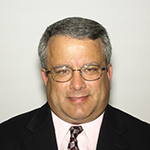In Arkansas, where according to the Arthritis Foundation 672,000 people live with arthritis, it’s not unusual for patients to travel at least 100 miles to see a rheumatologist.1
Michael Saitta, MD, a rheumatologist at the Arthritis Center of the Ozarks, Fayetteville, and president of the Arkansas Rheumatology Association (ARA), says patient access is a huge issue in Arkansas.
“We have patients who travel from several states away for specialized rheumatologic care,” Dr. Saitta says. “Access is an issue that doesn’t end at the state line. Nearby states, including Mississippi and Oklahoma, are also grappling with these issues, and we’re all working together to improve patient access to rheumatology care.”

Katarinanh / shutterstock.com
Founded 15 years ago, the ARA has 27 active members and works with an outside association management firm to coordinate meetings and supplement the work of ARA board members.
Dr. Saitta says ARA’s partnership with WJ Weiser and Associates, an Illinois-based association management company, has been invaluable in allowing ARA members to focus on issues that affect the state, such as the economics of rural medicine.
“Smaller state associations need help, and working in collaboration with a company such as WJ Weiser takes the pressure of running a state medical association off of the doctors,” Dr. Saitta says. “They coordinate phone calls and scheduling and work to generate funds and allow state societies to prosper.”
Currently, the ARA’s board of directors meets monthly and keeps in contact through regular email communications. The board is also planning the ARA’s next annual meeting, to be held in Little Rock April 17–18.
Working to Increase the Workforce & Access to Care

Dr. Saitta
Increasing the number of rheumatologists practicing in Arkansas is also a priority for the ARA. Like many rural states, Dr. Saitta says Arkansas has found it isn’t easy to recruit rheumatologists to work in the state’s sparsely populated communities. In addition to recruiting new physicians, Arkansas has grappled with the strain of physician retirements.
When a longtime rheumatologist in Hot Springs retired, Dr. Saitta notes there was no one to step in to take over the practice. Fortunately, a rheumatologist in Little Rock opened an outreach clinic in the area to better serve patients.
That wasn’t the case when the Mountain Home-based Baxter Regional Medical Center announced last year that it would be closing its Regional Rheumatology Clinic after the site’s rheumatologist resigned. In a hospital news release, a Baxter official said the clinic rheumatologist’s departure, combined with recruiting challenges, led to the decision to close the clinic.
Dr. Saitta notes the majority of the state’s rheumatologists live and work in larger cities, such as Fayetteville and Little Rock, and that recruiting physicians to smaller, rural towns, such as Mountain Home (population 12,300), isn’t an easy task.
To improve the odds of hiring rheumatologists to work in rural areas, the ARA has aligned itself with a local university fellowship program.
“We work with the University of Arkansas for Medical Science’s Rheumatology Fellowship Program, the only rheumatology training program in the state, to increase the amount of specialists,” says Dr. Saitta, who regularly has residents rotate through his own office. “We also have a great need for pediatric rheumatologists.”
Another way the state’s rheumatologists are working to better serve patients is by creating additional time in their schedules for new patient consultations and sending more stable patients to their local internist for follow-up care and a treatment plan.
“We’re also triaging consults and requesting a patient’s records to review first to ensure it’s an appropriate referral before asking them to travel a significant distance to see a rheumatologist,” Dr. Saitta says. “We want to ensure that patients who are really sick get in to see rheumatologists in a timely manner.”